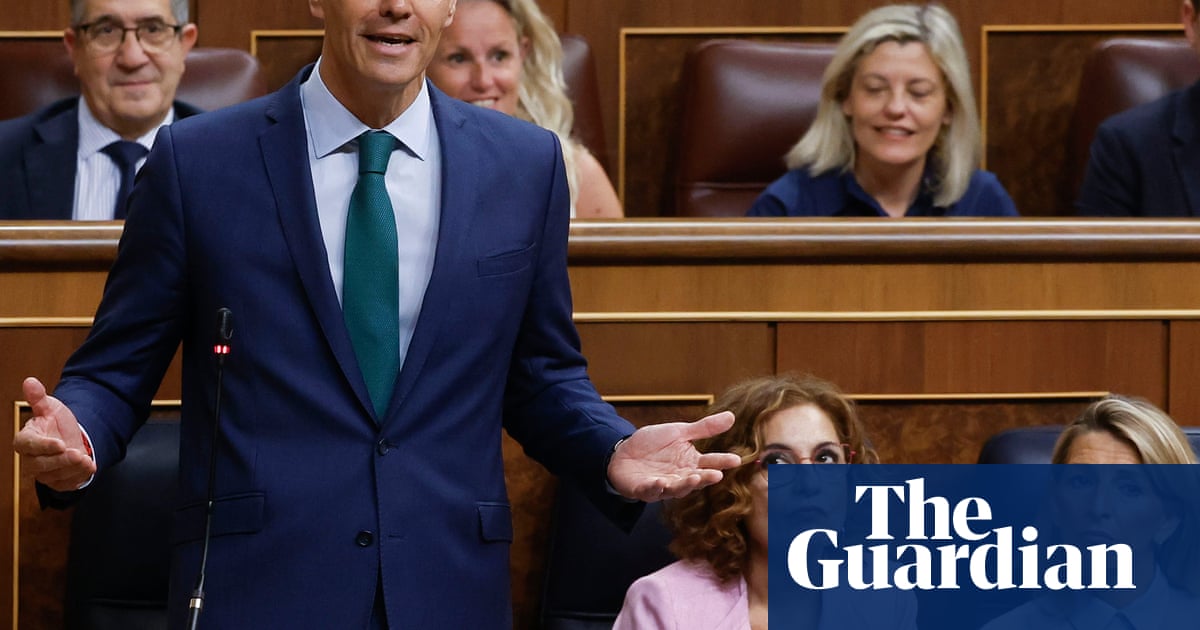The swirl of corruption allegations surrounding the centre-left government of Spain’s prime minister,Pedro Sánchez, has intensified dramatically after a senior member of his Spanish Socialist Workers’ party (PSOE) resigned hours after a judge found “firm evidence” of his possible involvement in taking kickbacks on public construction contracts.
Sánchez – who became prime minister in 2018 after usinga motion of no confidence to turf the corruption-mired conservative People’s party (PP) from office– is already contending with a series ofgraft probes relating to his wife, his brother, his former transport minister, and one of that minister’s aides. All deny any wrongdoing. A former PSOE member was also recently implicated in an alleged smear campaign against the Guardia Civil police unit investigating the corruption allegations.
But the pressure on his administration increased further on Wednesday when reports emerged that the Guardia Civil had a recording of Santos Cerdán León, a PSOE MP and the party’s organisational secretary, discussing taking kickbacks on public contracts with the former transport minister, José Luis Ábalos, and one of the minister’s aides, Koldo García.
On Thursday morning, a judge at Spain’s supreme court unsealed a case relating to the three men, saying there was “firm evidence of the possible involvement” of Cerdán in conspiring with Ábalos and García to receive money in return for the “undue awarding” of public contracts. The judge also invited Cerdán to testify voluntarily later this month.
Hours after both Cerdán and the PSOE insisted that he had never taken part in “any such conversations” and had never influenced the the awarding of public contracts, the MP stepped down from his role in the party and resigned his seat.
Cerdán insisted he was innocent in a statement announcing his resignation, explaining that he was standing down in order to “focus exclusively on defending myself and on providing relevant explanations that will show … that I have never committed and illegal act nor been complicit in one”. He also said he would testify before the judge on 25 June.
Ábalos was sacked from Sánchez’s cabinet in 2021 andsuspended by the PSOEin February last year after refusing to resign when his assistant, García, was accused of taking bribes to facilitate mask contracts during the Covid pandemic. Both are the subjects of ongoing corruption investigations and both have denied any wrongdoing.
The PP,which organised a large demonstration in Madrid on Sunday to protest against the Sánchez government and to call for an early general election, said the case against the prime minister and his circle was now utterly damning.
“If anyone was in any doubt as to why we felt there was a mafia-style plot among the party and the government, we imagine that doubt has been dispelled,” the party’s leader, Alberto Núñez Feijóo told parliament on Thursday.
Sánchez’s partners in the socialist-led minority government have also called for urgent action and answers.
Yolanda Díaz, who serves as labour minister and one of the country’s three deputy prime ministers, said it was “a very serious matter that needs to be clarified and fully explained as soon as possible”.
